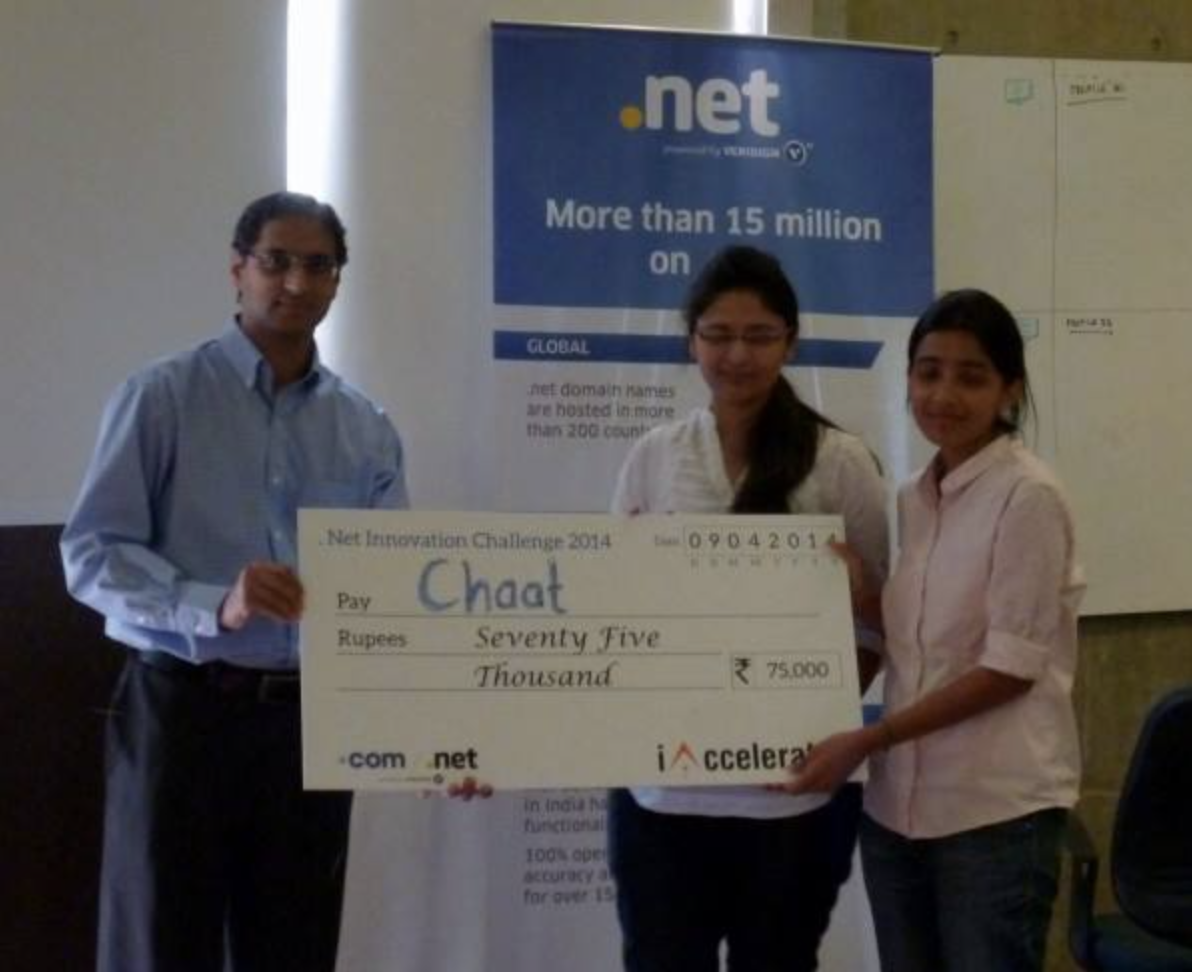Attempting to build a unicorn and falling short by a billion dollars

I was going to be a billionaire. I was so sure of it. You've got to have an (un)healthy amount of delusion in your system to believe in yourself enough to think you should start a startup.
My first startup made a total of 0$ in lifetime revenue.
In 2014, after graduating with a B. Tech. in electrical engineering (🤦♀️), I gave up my campus placement job offer to start up. I tried to convince a couple of my friends to join me.
As their potential co-founder, this is what I was bringing to the table:
I didn’t know how to code (I had never needed to go much further than “Hello World!”).
I most definitely did not know how to sell (I’m super introverted).
And I had no particular startup idea I was keen to work on.
Nobody was foolish enough, so now I had no co-founder.
I was off to a terrific start.
I started building the full version of what had started as a side-project during undergrad.

A street food recommendation engine. Let’s say you were craving a vadapav (deep fried potato fritter sandwiched between bread), the app would tell you where you would find the best vadapav in your area based on crowdsourced recommendations.
I didn’t know how to code, so it took me 3 months to build the app. Something ChatGPT can now build in a few minutes. Once it was ready, I understood what the cold start problem meant.
Nobody would ever know about the app, because I was never going to talk to anyone.
There were no reviews on the app, so even if someone came, they would leave immediately.
It would take forever to add the reviews myself, because I was really not into street food (because my mom doesn’t let me).
There was no easy way to monetize (even in the best case scenario where it had millions of hypothetical users).
Not quite the get-rich-quick scheme I had in mind.
So I did the smart thing to do. Pretend that the idea was the problem and start over.
B2C is hard to monetize. Got it. Onto B2B.
The idea I narrowed down on was this: predictive analytics on top of millions of social profiles to find most relevant candidates for a particular role and use social cues to enable recruiters to reach out with a personalized pitch. The machine learning algorithm I built eventually had a 60% match rate i.e. a recruiter was 60% likely to accept a candidate profile our team (I was the whole team) recommended. The recruiters were going to see how brilliant this was and pay for it.
1 year. I sat in front of my computer. Wrote code and whiled time. Built every feature I could think of. No hobbies, no friends, no nothing. Never went out. Not because I didn't have the time. I just didn’t know where to start, or if I deserved to have fun because I wasn’t successful yet. Mark Zuckerberg was probably not out having fun while building Facebook, so neither should I.
I knew what was coming next. I would need to sell for anything I built to go anywhere. Maybe networking events were a good place to start. So that’s where I went. This was in Pune (India), which is an IT hub. Not quite the Silicon Valley the unicorn founder in me was looking for, but I had to make do.
At startup events I was surrounded by 200+ men in their 40s. I was 21. It didn't help that I looked 15. The conversation was always one foot above my eye level and I looked like I had lost my dad in the crowd.
Nothing was happening & nothing was looking like something was going to happen.
At some point I needed to acknowledge that the idea wasn’t the issue, I was the issue.
I had never really applied for a job and knew nothing about this problem. I had no business building this business.
I didn’t know how to sell. I wasn’t even willing to talk to people.
I wasn’t having fun.
My peers from undergrad were graduating with their management degrees, cruising past the halfway mark for their PhD degrees from MIT, and making bank at Goldman Sachs & Apple.
I was unemployed, living off my parents and had no friends.
I didn't tell anyone when I quit. I’m not sure if I even told myself. Acknowledging that I quit would mean that I failed. One fine day I was just physically unable to work on it anymore. The next day, it felt like a huge weight off my shoulders to not have to wake up to the thought of working on it anymore.
I had spent almost 2 years pretending like things were going to happen and that I was headed somewhere. I was not. I was super naive, knew nothing about anything and had started up mostly because I thought that was the fastest way to get rich.
There’s a fine line between not giving up and refusing to acknowledge the reality of the situation to save face. I pretended (to myself) that I was at it because I wasn’t a quitter but deep down I knew that I just didn’t have the courage to quit (yet).
I worried about what people would think when I decided to wrap it up (there wasn’t much to wrap up to be honest). It took me a long time to realize that what other people think doesn't matter, because nobody is ever thinking about you (which is a good thing). I think that's obvious only in hindsight (or atleast not super obvious at 22).
It’s true that startup failure is glorified and rightly so, but that is only when looking back. In the moment it is soul crushing and lonely and defeating.
Do I regret it?
If I had a do-over, I would probably spend the first 1-2 years of my career at MBB or a VC firm. Not because those paths are more glamorous than others. But something like that early on gives you the (baseless but much required) confidence to think that you are somebody. So you stand up straighter and don't think twice about starting a conversation. I on the other hand have to rehearse my McDonald’s order.
My brother went down this path. Given how much better he thinks he is than me, the data definitely fits the hypothesis. 😂
But no, I don't regret it one bit. It taught me what I was made of.
I spent the worst 2 years of my life in a self-inflicted hell. But I taught myself to code, and to survive.
I also got a lot of noob startup mistakes out of the way. If I hadn't gotten them out of my system, I would inevitably have made them with my next startup. Instead, I made better mistakes with startup #2.
Mistakes I made and what I learnt
Customers do not care about how cool the idea sounds, or how fancy the tech is. They only care whether or not I can solve their problem (the very cool app I built did not solve their problem).
Sell first and build later. Start charging on day 1. You can spend years building something nobody cares about. If you ask them to pay upfront, before you’ve built anything, you save yourself years of pain of building something no one wants.
If you're not having fun, there is no point. Startup or not, life is too short to not have fun. Spending your life to make a bit of money is almost never worth it.
I spent the next 9 months chilling at home with my mom and getting over myself by waiting tables at Pizza Hut.
The myth of overnight success
The media often portrays successful entrepreneurs as overnight successes, but the reality is far from it. Mark Zuckerberg's triumph came after many failed attempts, and Mark Cuban didn't make his first $2 million until after he was 32 (from exiting the company he worked on for 7 years). It took LEGO more than 2 decades to hit 1 million dollars in annual revenue.
I feel stupid admitting this now but at 22, I did not know this. I thought that I had tried and failed, so it was clear that I did not have what it took.
If you’re not Zuck at 19, you’re always going to be the average Joe. Black and white.
But that's not how anything works.
